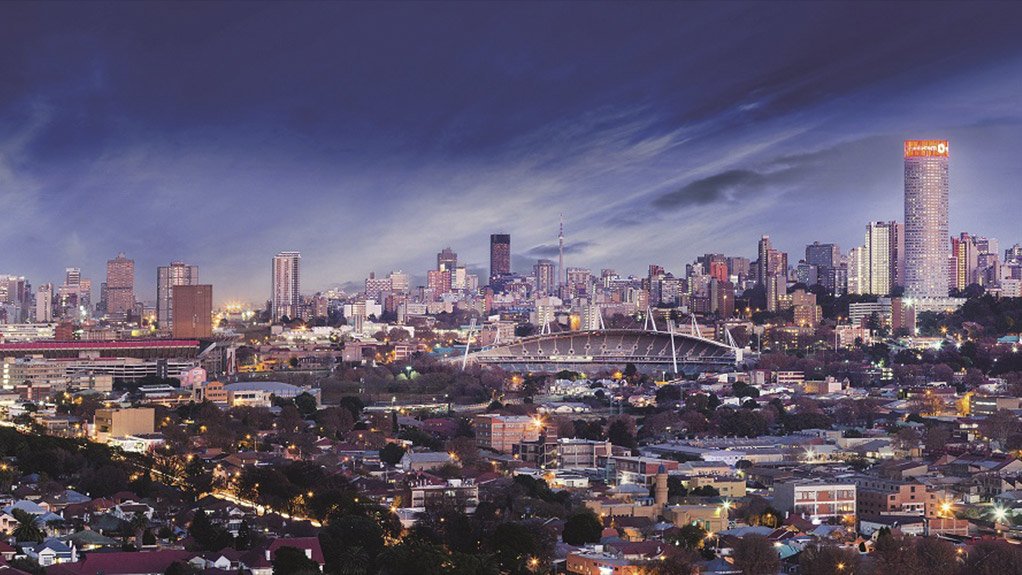Power utility Eskom has announced plans to interrupt power supply to the City of Johannesburg (CoJ) at certain pre-determined times of day from next month, citing City Power’s failure to pay R4.9-billion in arrears owed to Eskom.
The CoJ, in response, says Eskom has overbilled City Power and asked Eskom to retract its public notice within five days and “engage in genuine negotiations to resolve the matters constructively”.
An initiative of the Organisation Undoing Tax Abuse (Outa), called JoburgCAN, has also written to Eskom calling for an emergency meeting to halt the impending crisis and obtain the factrs of the debt situation between Eskom and the CoJ.
The State-owned national power utility says the power supply limitation is in line with the Provision of Promotion of Administrative Justice Act and that Eskom first explored all other avenues to accommodate the CoJ but can simply no longer afford to foot the bill without putting financial strain on its own business.
According to the Intergovernmental Relations Framework, as well as the Constitution, the city is supposed to cooperate and assist Eskom with fulfilling its mandate of ensuring that citizens have access to affordable electricity.
Eskom believes the CoJ has breached these obligations by not paying Eskom for the bulk electricity it supplies, which, in turn, makes it difficult for Eskom to fulfil its mandate.
When metros or municipalities fail to pay Eskom on time or at all, it forces Eskom to borrow additional money at premiums to fund operational costs, particularly as the country’s municipal debt arrears to Eskom stands at R90-billion.
“Eskom’s financial sustainability and ability to supply electricity at affordable prices is contingent upon its ability to improve its balance sheet by increasing revenue and reducing expenses. Revenue can only be increased by collecting electricity debts and/or increasing electricity tariffs,” Eskom explains.
While the CoJ has acknowledged its indebtedness to Eskom, the national power utility says it refuses to pay the full amount of its monthly bill.
The city, meanwhile, alleges that Eskom is overbilling it on some of its supply points. The city says there are ongoing disputes regarding the overbilling of over R3.4-billion, with a pending appeal and monthly declarations since July.
The CoJ said in a statement issued on November 7 that electricity interruption would be unjust, counterproductive and potentially harmful to the residents and businesses of Johannesburg.
It maintained that Eskom had failed to provide clarity on the disputed billing charges, which had forced the CoJ to seek legal recourse to protect the rights and interests of its citizens.
Eskom says that, in addition to the CoJ’s historic debt of R4.9-billion, another R1.4-billion will become due and payable at the end of November.
Eskom has invited interested and affected parties to submit written representations on the matter, including submissions why Eskom should or should not proceed to interrupt electricity supply to certain points. Eskom expects to announce a decision on the interruptions on or about December 12 after reviewing representations.
The CoJ says it intends to explore all available legal avenues to prevent any disruptions to the electricity supply.
In commenting on CoJ's financial situation, Outa says the city's billing system has been strongly criticised by the High Court in October, which relates to a dispute with a customer over an electricity bill. At the time, the judge in the case said CoJ likely did not have the slightest knowledge of what is really going on in their accounting systems or their electricity supply system.
CoJ and Eskom's dispute also reached the High Court earlier this year, with the court having ordered the city in July to pay Eskom R1.07-billion plus interest and legal costs after both parties agreed that they could not settle the facts of the billing dispute through court papers.
The court was told that the electricity supply agreement between Eskom and CoJ states that the city must pay its electricity account even if it disputes it, provided that the account will be corrected if an error is later revealed.
The amount owned to CoJ itself totals more than R51-billion, with tariff increases, failing services and increased punitive policies such as solar charges and prepaid meter fees having left people defaulting and checking out of the municipalities "shambolic" billing, Outa states.
Outa agrees with CoJ, however, that planned power cuts by Eskom will be an inconvenience and lead to water shortages as well.
"This is a frustrating wake-up call to all residents and business owners, who are already strained under an avalanche of CoJ failures, that we have to unite and fight back against a Joburg council that no longer represents our interests," Outa says.
Edited by: Chanel de Bruyn
Creamer Media Senior Deputy Editor Online
EMAIL THIS ARTICLE SAVE THIS ARTICLE
ARTICLE ENQUIRY
To subscribe email subscriptions@creamermedia.co.za or click here
To advertise email advertising@creamermedia.co.za or click here













